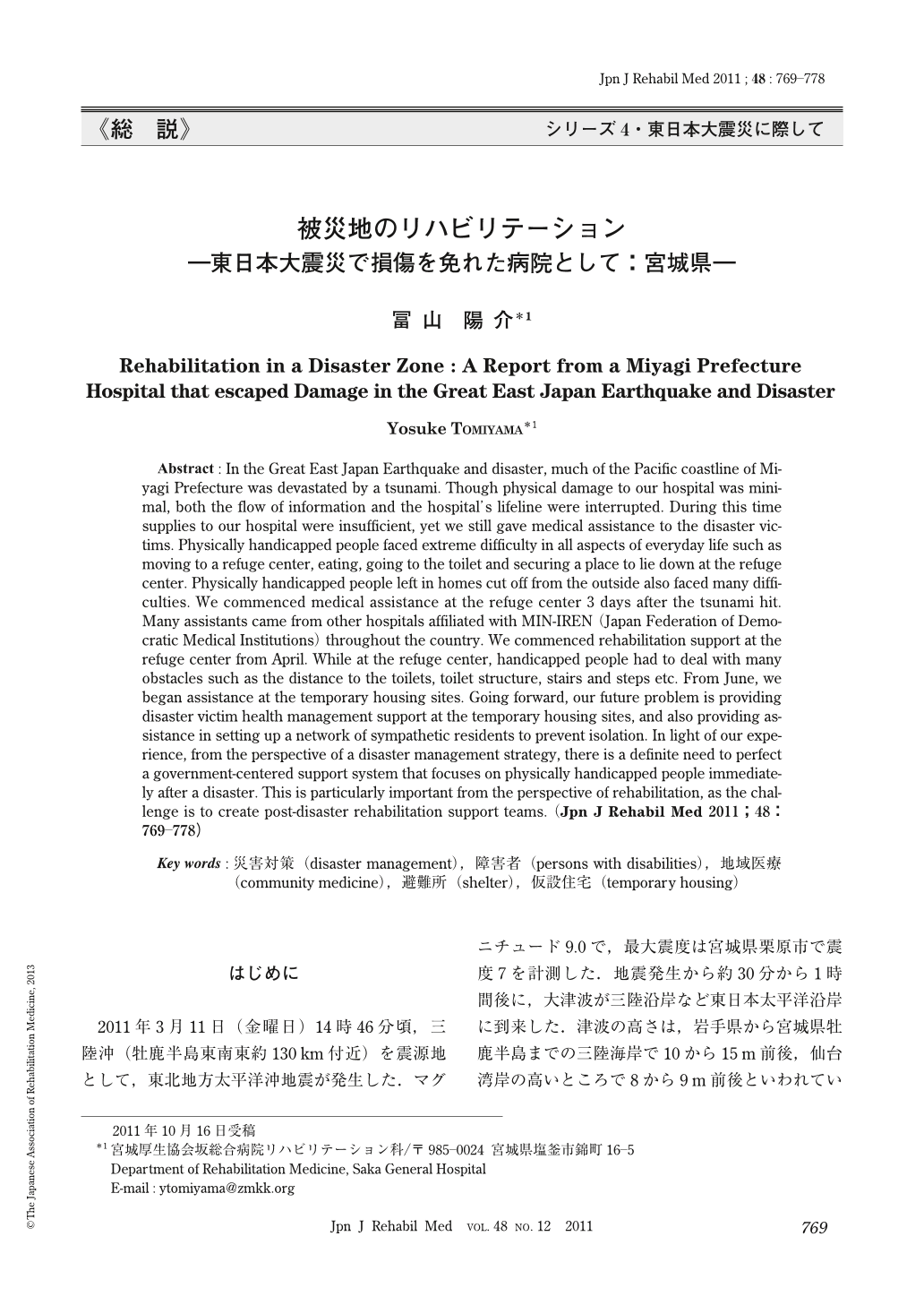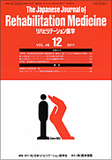Japanese
English
- 販売していません
- Abstract 文献概要
- 1ページ目 Look Inside
- 参考文献 Reference
はじめに
2011年3月11日(金曜日)14時46分頃,三陸沖(牡鹿半島東南東約130km付近)を震源地として,東北地方太平洋沖地震が発生した.マグニチュード9.0で,最大震度は宮城県栗原市で震度7を計測した.地震発生から約30分から1時間後に,大津波が三陸沿岸など東日本太平洋沿岸に到来した.津波の高さは,岩手県から宮城県牡鹿半島までの三陸海岸で10から15m前後,仙台湾岸の高いところで8から9m前後といわれている.死者・行方不明者約2万人,震災4カ月後で避難者約6万人,全半壊した家屋約25万戸である.福島第一原子力発電所事故はまだ収束していない.
当院は宮城県太平洋沿岸の塩釜市と多賀城市の境界線上のやや小高い土地にある.津波は近くまで及んだが病院そのものは小さな被災で済んだ.当日の最高気温は3.8℃で雪が降り寒かった.地震直後から,当院は全国の民医連の病院から支援をもらいながら病院全体をあげて災害対策に奔走した.リハビリテーション(以下,リハ)部門も様々な活動を行った.
今回は大局的な問題や他の地域の状況などはあえて割愛し,当院の活動を中心に具体的に述べる.支援を受けながら現場で取り組んだ者としての実感に即した記述に努め,災害時のリハ活動について考察する.
2006年に内閣府等で作成された「災害時要援護者の避難支援ガイドライン」1)で,災害時の障害者等への対策を包括的に論じている.ここで用いられている要援護者という用語を今回の報告でも用いる.
Abstract : In the Great East Japan Earthquake and disaster, much of the Pacific coastline of Miyagi Prefecture was devastated by a tsunami. Though physical damage to our hospital was minimal, both the flow of information and the hospital's lifeline were interrupted. During this time supplies to our hospital were insufficient, yet we still gave medical assistance to the disaster victims. Physically handicapped people faced extreme difficulty in all aspects of everyday life such as moving to a refuge center, eating, going to the toilet and securing a place to lie down at the refuge center. Physically handicapped people left in homes cut off from the outside also faced many difficulties. We commenced medical assistance at the refuge center 3 days after the tsunami hit. Many assistants came from other hospitals affiliated with MIN-IREN (Japan Federation of Democratic Medical Institutions) throughout the country. We commenced rehabilitation support at the refuge center from April. While at the refuge center, handicapped people had to deal with many obstacles such as the distance to the toilets, toilet structure, stairs and steps etc. From June, we began assistance at the temporary housing sites. Going forward, our future problem is providing disaster victim health management support at the temporary housing sites, and also providing assistance in setting up a network of sympathetic residents to prevent isolation. In light of our experience, from the perspective of a disaster management strategy, there is a definite need to perfect a government-centered support system that focuses on physically handicapped people immediately after a disaster. This is particularly important from the perspective of rehabilitation, as the challenge is to create post-disaster rehabilitation support teams.

Copyright © 2011, The Japanese Association of Rehabilitation Medicine. All rights reserved.


